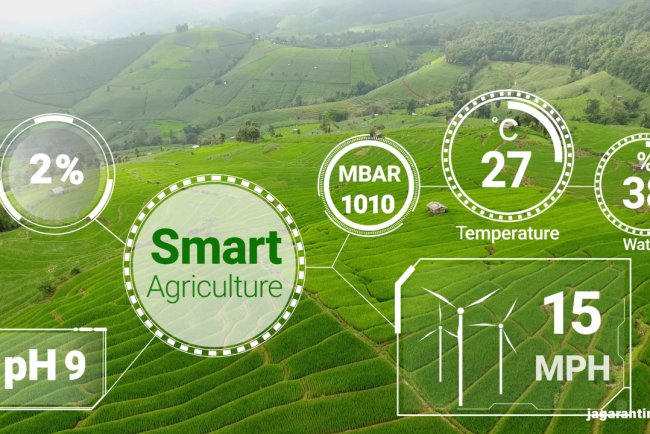India’s First Seed Germination Database to Revolutionize Farming and Reforestation
India is developing its first-ever seed germination database to help farmers, scientists, and foresters select the right species for climate-resilient agriculture, forestry, and ecological restoration.

India’s First-Ever Seed Germination Database: A Game-Changer for Agriculture and Ecology
In a landmark development for Indian agriculture, forestry, and environmental conservation, India is all set to launch its first-ever Seed Germination Database. This pioneering initiative is aimed at creating a centralized digital repository of seed germination data for hundreds of indigenous plant species.
The database will not only help scientists, farmers, and conservationists, but also contribute to the restoration of degraded lands, climate-resilient agriculture, and biodiversity protection.
What Is a Seed Germination Database?
A Seed Germination Database is a structured digital platform that stores crucial data about:
- How and when seeds germinate
- What temperature, moisture, and light conditions they need
- The germination rate and success percentage
- Time taken for seedlings to sprout
Such databases are vital for reforestation projects, crop planning, nursery management, and botanical research.
Why Does India Need One?
Despite having one of the world’s richest floral diversities, India lacks a unified, verified source for seed germination information. As a result:
- Farmers struggle to grow native species effectively.
- Forest departments rely on trial-and-error methods for plantation drives.
- Restoration of degraded landscapes becomes time-consuming and costly.
The upcoming database is expected to bridge this information gap, enabling stakeholders to make data-driven decisions.
Who Is Developing the Database?
The initiative is being led by:
- Institute of Forest Genetics and Tree Breeding (IFGTB), Coimbatore
- Under the umbrella of Indian Council of Forestry Research and Education (ICFRE)
The project brings together botanists, ecologists, data scientists, and foresters from across India. It also includes field trials from different agro-climatic zones to ensure accuracy and regional relevance.
Scope of the Database
The Seed Germination Database will initially focus on:
- Over 200 native tree species
- Including rare and endangered plants
- Widely used agroforestry and reforestation species
- Medicinal and economically important species
Eventually, it may expand to include:
- Shrubs, grasses, and herbs
- Exotic and hybrid plant varieties
- Urban landscaping species
Key Benefits of the Database
1. Boosting Plantation Success
Forest departments and NGOs often plant thousands of saplings, only to see poor survival rates. With this database:
- They can select seeds with high germination potential
- Follow best practices tailored to each species
2. Supporting Scientific Research
Botanists and agricultural scientists will have access to standardized germination protocols, improving the quality and speed of experiments.
3. Helping Farmers
Farmers adopting agroforestry models will benefit from knowing which seeds will germinate successfully in their local climate.
4. Restoration of Wastelands
India has over 96 million hectares of degraded land. The database will help select suitable species for replantation, supporting ecological recovery.
5. Conservation of Endangered Species
For rare and threatened plants, knowing exact germination techniques is crucial for ex-situ conservation and genetic preservation.
What Kind of Data Will It Include?
The database will include parameters such as:
|
Parameter |
Details |
|
Germination Time |
Days taken to sprout |
|
Viability Period |
Shelf-life of the seed |
|
Light & Temperature Need |
Ideal conditions for germination |
|
Soil Moisture Requirement |
Optimum water content |
|
Pre-treatment Methods |
Scarification, soaking, etc. |
|
Germination Rate |
% success of seeds sprouting |
Each entry will be geo-tagged and scientifically verified, making the data reliable for field use.
Use of Technology
The project also plans to integrate:
- Mobile-based access for farmers
- QR codes for seed packets linked to the database
- AI-based prediction of germination success based on region and climate
Eventually, it could also be linked with national farming portals, nurseries, and soil health databases for more integrated planning.
What Experts Are Saying
"This database is a game-changer. It empowers not just scientists but also community-led conservation efforts," says Dr. Ramesh K, a senior botanist.
"With climate change creating unpredictable growing conditions, knowing exactly how seeds behave is invaluable," adds Ms. Reema Roy, an agroforestry specialist from Assam.
India Joins Global Efforts
While several countries like the USA, Australia, and Brazil already maintain similar germination databases, India’s move is significant because:
- It focuses on indigenous biodiversity
- Adapts data for tropical and sub-tropical climates
- Is being created in multiple regional languages
This positions India as a leader in ecological digitization, especially in the Global South.
What’s Next?
The pilot version of the Seed Germination Database is expected to launch by late 2025, starting with species from:
- The Western Ghats
- Northeast India
- Central Indian forests
Once fully functional, the database will be open to:
- Researchers
- NGOs and forest officers
- Farmers and agroforestry experts
- Students and policy makers
Sowing the Seeds of a Greener Future
India’s first-ever Seed Germination Database is more than a collection of data—it’s a visionary step towards scientific agriculture, ecological restoration, and climate resilience.
By combining traditional knowledge with modern technology, India is building a bridge to a future where every seed sown is more likely to succeed—and every effort to green the Earth is better informed.













